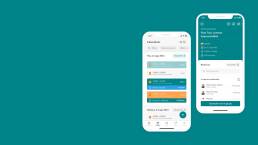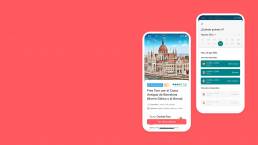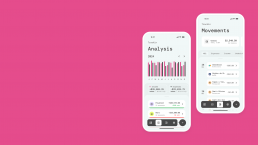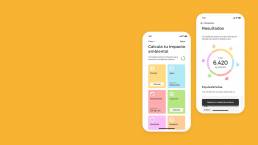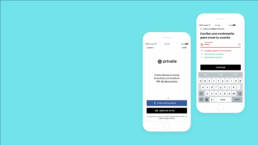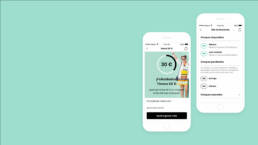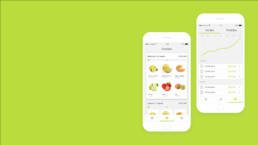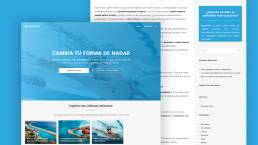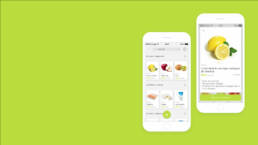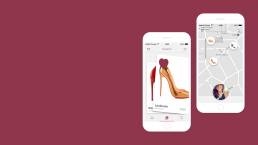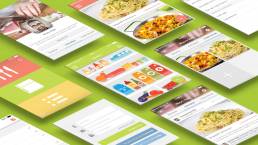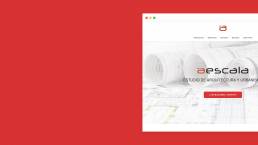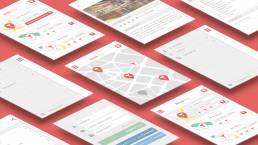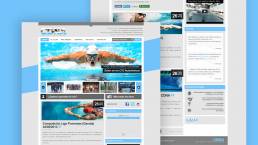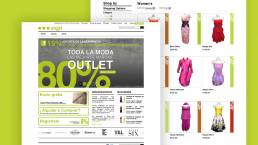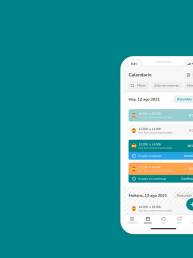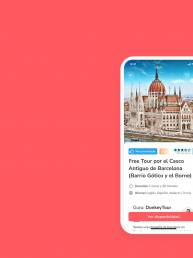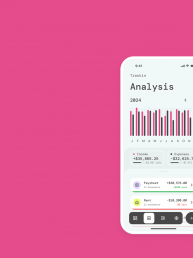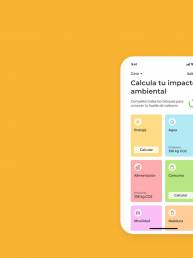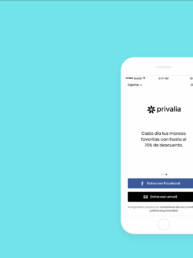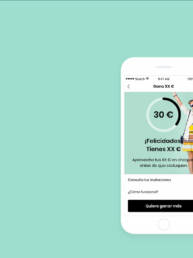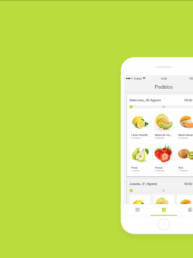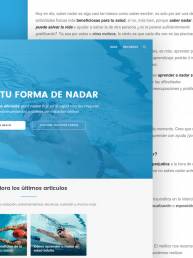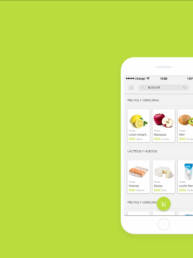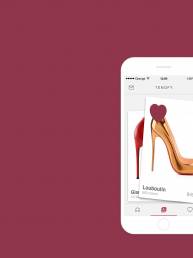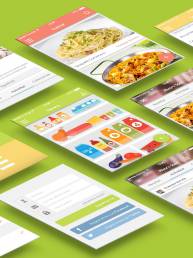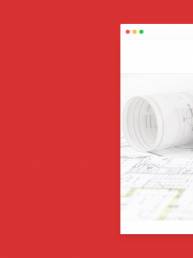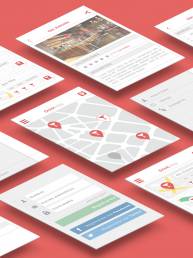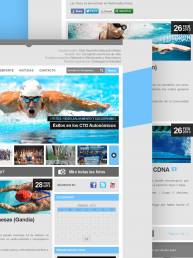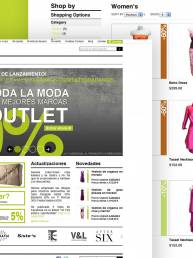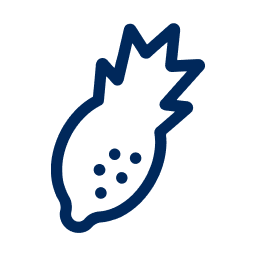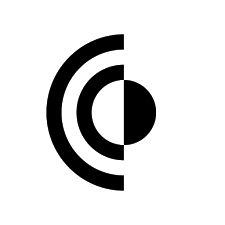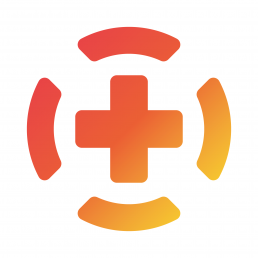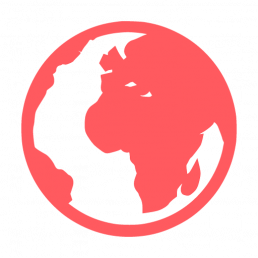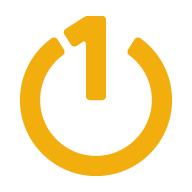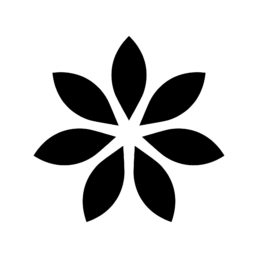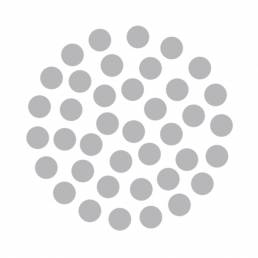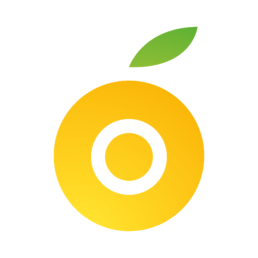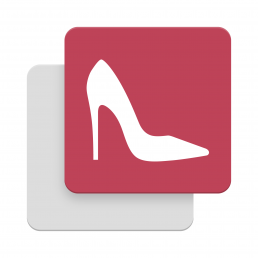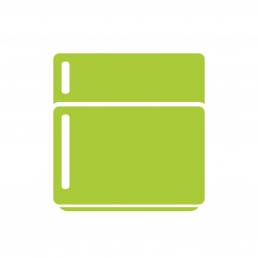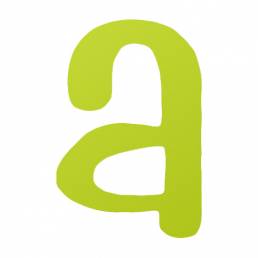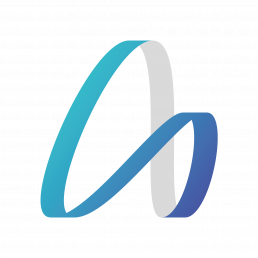About
Background
Following my passion
Design has always been my passion and hobby since my early childhood, I learned to design and code on my own out of curiosity. I studied architecture, where I developed my artistic, functional, technical and humanistic base that has had a great impact on my work.
Due to my concern and passion for the digital world, I completed my studies with a master in digital business and specialized training in mobile and web development, digital marketing and product design, among others.
At work
Turning a passion into a job
I began working with digital products at a young age, starting as a Freelancer for a select group of clients. Over time, I’ve completed 35+ projects across Graphic Design, Development, and UX/UI Design.
As a CEO & Head of Product, I have led multiple impact-driven startups, including Onerz (focused on reducing consumer emissions), Tendfy (supporting local and proximity commerce), and YourFridge (tackling household food waste). In these ventures, I implemented the Lean Startup model, overseeing teams, business strategy, growth, and partnerships.
I’ve also contributed as a Product Designer UX/UI & Growth expert for well-known companies like Guruwalk (the largest marketplace for tip-based tours worldwide), Privalia (a leading online fashion outlet), and Foods (a major online supermarket in Chile). My work with cross-functional teams focused on enhancing user experience to drive growth through conversion optimization, customer-centric design and problem-solving.
With over 10 years of experience in fast-paced and high-demand environments, I’ve held various product roles across industries such as foodtech, edtech, retailtech, cleantech, traveltech and fintech. I am passionate about working on projects that not only deliver business success but also create a positive impact on society and the environment.
In life
Making the most of my life
I love making the most of my life, enjoying everything it can offer me. I value always learning and experiencing new things and being around great people. I’m passionate about traveling (40+ countries), nature, photography and drones. I like to tell stories of my travels through the videos that I post on Youtube and Instagram.
I like sports in general. I’ve been a professional swimmer & lifesaver for 20+ years. World runner-up and European champion several times, I’ve participated in 4 world championships and 6 European championships. I was co-founder of a swimming club, created Aquademy (an online swimming academy) and published a guide to learn to swim on Amazon.
Work
Skills
My core skills lie in the intersection of design, business, marketing and technology, which means that I’m skilled in creating digital experiences with a focus on business goals and an iterative, data-driven approach.
Professional
Personal
Experience
Those experiences made me the professional I am today.
2025 – present
Principal Product Designer UX/UI
Fresh People is a startup specializing in strategic talent management by combining consultancy services with AI-powered technology with more than 100 clients including Mercadona Tech, La Liga, Inditex, and Freshly Cosmetics.
2025 – present
Freelance Product Designer UX/UI
Working as part of Cosmico’s curated talent network, I collaborate with startups and scaleups to design user-centered digital products that drive business impact.
Main Responsibilities
- Lead end-to-end design processes: research, ideation, prototyping, and UI execution.
- Translate business goals and user needs into intuitive, scalable design solutions.
- Collaborate closely with product managers and developers in agile environments.
Oct 2024 – Present
Co-founder & Product Maker AI
Rescued is an app to improve emergency preparedness and save lives by combining step-by-step emergency response guides and gamified learning experiences.
Main Responsibilities
- Defined product vision and strategy, aligning user needs with business goals and technological feasibility.
- Led product design and development using AI tools and no-code platforms (Figma, Cursor, V0, Flutterflow…).
- Iterated through continuous discovery and rapid prototyping in real-world testing environments.
Essential Tools
Figma, Cursor, V0 (Vercel), Lovable, Flutterflow, Coolors, Bolt.new, Replit, Builder.io
Ago 2021 – Nov 2023
Head of Product Design UX/UI
GuruWalk is the world’s largest marketplace for tip-based tours, with 300k+ users/month across 650+ cities.
Main Responsibilities
- Conducted qualitative and quantitative research (User Interviews, Surveys, Heatmaps, Customer Journey Mapping, Personas).
- Led the UX/UI strategy (analytics & data, cognitive load optimization, wireframes, funnel analysis, event tracking…) to improve product performance.
- Designed a component-based design system (components, rules, style guides, design patterns and standards, libraries…) for consistency and scalability.
Essential Tools
Figma, Hotjar, Amplitude, Google Analytics GA4, VWO, Google Optimize, Lookback.io, Storybook, Typeform, Zeroheight, Appcues, ProductBoard
Jun 2019 – May 2021
Co-founder & CEO
Onerz is a greentech startup that helps users find sustainable and cost-effective products and services. Developed within ZubiLabs, an Impact Venture Builder.
Main Responsabilities
- Developed and iterated the go-to-market strategy, balancing profitability and sustainability KPIs.
- Led and managed a multidisciplinary team of up to 7 people, implementing Scrum & Kanban methodologies.
- Modeled and executed the business plan, financial forecasting, and investor relations strategy.
Essential Tools
Adobe XD, ZohoCRM, Localytics, Make.com, Mailchimp, Zendesk, Asana, Microsoft Office, Typeform, Optimizely, Leadpages, Zapier, Unbounce, Hubspot
Oct 2017 – Jun 2019
Senior Product Designer UX/UI & Growth
Privalia is one of the largest e-commerce platforms in Spain, Italy, Mexico, and Brazil, serving 30M+ users worldwide.
Main Responsibilities
- Designed persuasive user experiences (product hacking, multivariate testing, CRO, user flow, nudging, fogg behavior model…) to drive product improvements.
- Conducted qualitative and quantitative research (usability testing, customer journey map, session recordings, user testing, feedback, polls, jobs-to-be-done…) to identify user needs and problems.
- Worked closely with front-end teams to ensure seamless design implementation and improved product performance.
Essential tools
Google Analytics GA4, Mixpanel, Lookback.io, Zeplin, Sketch, Jira, Trello, Overflow, Proto.io, UserTesting, Protopie, Balsamiq, Origami Studio, Miro, Mural
Jun 2017 – Oct 2017
Senior Product Designer UX/UI
Indra is one of the 100 largest companies worldwide, developing a next-generation TMS (Travel Management System) for hotel chains operating in 10+ countries (5-month contract)
Main Responsibilities
- Designed conversion-driven UX/UI solutions for desktop and tablet, balancing business objectives and user needs.
- Developed wireframes, journey maps, interaction flows, and interactive prototypes, aligning with the product roadmap.
- Led collaborative workshops & brainstorming sessions with stakeholders, product managers, and developers to drive design decisions.
Jan 2017 – Apr 2017
Lead Product Designer UX/UI
Foods.cl is a cross-platform e-commerce supermarket in Santiago de Chile, serving 1k+ recurring customers. Led the end-to-end product design and launch within a 4-month contract.
Main Responsibilities
- Designed and launched the new app and web platform, aligning business goals, user needs, and product strategy.
- Built the product roadmap and backlog, coordinating with development, marketing, and design teams using Agile (Scrum & Kanban).
- Conducted KPI analysis, competitive benchmarking, and user feedback research to drive continuous improvement.
July 2013 – July 2016
Founder & CEO
Tendfy is a B2B2C marketplace startup that uses AI-driven recommendations to help users find and purchase shoes from nearby stores based on their preferences and location.
Main Responsibilities
- Led, scaled, and managed a cross-functional team of up to 5 members, implementing Scrum and Kanban methodologies for efficient product development.
- Optimized the product experience through data analysis, machine learning, and predictive analytics to enhance user engagement and conversion rates.
- Developed and executed the go-to-market strategy, leveraging Inbound Marketing, Growth Hacking, and strategic partnerships to drive adoption.
- Secured funding and partnerships, leading negotiations with business angels (BA), public financing programs, banks, and venture capital (VC) investors.
Nov 2014 – May 2015
Co-founder & Head of Product
Yourfridge is an AI-driven nutrition assistant that analyzes user eating habits to provide personalized discounts, curated recipes, and optimized shopping lists, promoting healthier choices.
Main Responsibilities
- Conducted market research, customer discovery, and user surveys to identify key user needs and validate product-market fit.
- Designed a data-driven UX/UI experience, leveraging behavioral insights to enhance user retention and engagement.
- Led cross-functional team coordination to develop the MVP using agile methodologies, ensuring iterative improvements and a seamless user experience.
Jun 2012 – Jun 2013
E-commerce Manager
Ipemoda is a fashion-tech e-commerce platform pioneering an innovative nationwide dress rental model, enhancing accessibility and affordability for fashion-conscious consumers.
Main Responsibilities
- Managed web development in Magento (PHP, CSS, HTML, JS), ensuring a seamless shopping experience.
- Oversaw inventory management and ERP to optimize stock control and operations.
- Implemented digital marketing campaigns (SEO, SEM, SMO, Social Media, and events) to drive brand visibility and customer acquisition.
- Developed customer support strategies, integrating CRM systems to enhance user satisfaction and retention.
2008 – 2012
Freelance UX/UI Designer
Design and iterate +35 digital products (responsive websites, e-commerce, marketplaces, mobile applications, iOS & Android…) using Lean UX, Design Thinking and Mobile-first Design methodologies.
Latest trends in User Interface Design, Interaction Design (IxD), best practices in Accessibility & Inclusive Design (WCAG Compliance, Ethical Persuasive Design…) and Usability Standards (Apple and Android design guidelines…), Cutting-edge tools (Adobe Creative Suite, Photoshop, Illustrator, InDesign…).
Method
My design process is based on the principles of Design Thinking and the Agile methodology, focused on people’s problems and needs, making emphasis on empathy, creativity and collaboration. It is iterative and feedback-driven, and includes these phases although it does not have to follow them linearly.
This phase is about deeply understanding the needs, problems and desires of the users. To achieve that, I conduct research through interviews, surveys, data analysis and observation of user behavior.
In addition, alignment with the business and product objectives is also addressed, through transversal coordination with the different stakeholders to obtain the best result.
Tools
- Observation: Interviews, surveys, participant observation, data analysis...
- Empathy map: Visualize the user's needs, emotions, thoughts and experiences.
- Journey map: Describes the user's journey through a process or service.
- Buyer persona: Semi-fictional representation of your customers based on behavior
- Customer discovery: The continuous process of researching and learning about the customer
- Problem statement: Describes the problem clearly and concisely from the user's perspective.
- Prioritization: Select the most important problems to solve.
In this phase I generate innovative and feasible ideas to solve users’ problems or meet their needs, but we should not stick with the first idea that comes to mind. Sometimes the most outlandish ideas are the ones that generate visionary solutions. Good ideas can come from anyone, so collaboration is important.
Tools
- Brainstorming: Generate a large number of ideas in a short time.
- SCAMPER: Technique to modify and improve existing ideas.
- Storytelling: Tell a story to connect with the user's emotions.
- Moodboard: Visual representation of a concept, idea, or theme to communicate ideas
- Impact Matrix: Evaluate the potential impact of solutions.
Fake it until you can make it. I transform ideas into reality to validate it with real users spending the minimum amount of time to create the closest to the real thing. Building prototypes makes ideas tangible and helps us visualize possible solutions.
The user feedback help me to identify improvements, failures or shortcomings and iterate design solutions.
Tools
- Sketches: Quick drawings to capture ideas on paper.
- Mockups: Low-fidelity prototypes to visualize the look and feel of the solution.
- Functional prototypes: High fidelity prototypes that allow testing the solution in a real environment.
- Flow diagrams: Visual representation of a process, system or flow.
- Information architecture: Structure and organize information so that it is easy to find, understand, and use.
- User testing: Observe how users interact with the prototype and collect their feedback.
- Iteration: Refine the solution based on the feedback and feedback received.
It’s time to move it to production prioritizing the delivery of value to the user as quickly as possible, documenting all specifications and requirements to facilitate
the development.
The solutions are also tested to measure the impact quantitatively and think about possible improvements.
Tools
- A/B testing: compare two or more versions of a solution to determine which one performs better based on a predefined objective.
- Heat maps: Visual representation of data where the magnitude of individual values within a dataset is indicated by color.
- Shadowing: Observing and learning from a more experienced professional in their daily work environment.
- Iteration: Refine the solution based on the feedback and data collected.
Mentions
Awards
- 2025 Best Android and IOS App Designs with @GuruWalk / DesignRush
- 2021 Best Traveltech / Tourism Startup @GuruWalk / VLC Startup Awards
- 2020 Top 14 Best Innovative Projects to contribute to economic and social recovery from Covid-19 with @Onerz / Energia+
- 2016 Finalist II Startup Battle BBVA with @Tendfy / BBVA
- 2014 1st Price Startup Weekend Valencia with @DrinkWay / Startup Weekend
- 2014 2nd Price Startup Weekend Valencia with @YourFridge / Startup Weekend
- 2013 Top 5 Best Final Architectural Career Project with @Molidelspasiego / Polytechnic University of Valencia
Interviews
- 2020 Radio interview in Plaza Radio with @Onerz / Plaza Radio
- 2020 Out in digital journal Emprendedores with @Onerz / Emprendedores
- 2020 Out in digital journal EFE with @Onerz / EFE
- 2016 Out in digital journal Theappdate.es with @Tendfy / The App Date
- 2016 Out in digital journal Eleconomista.es with @Tendfy / El Economista
- 2016 Radio inverview in Libresfera.com @Tendfy / Libresfera
- 2016 Interview in digital journal Impulsandopymesdigital.com with @Tendfy / Impulsando Pymes
